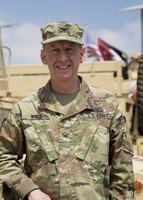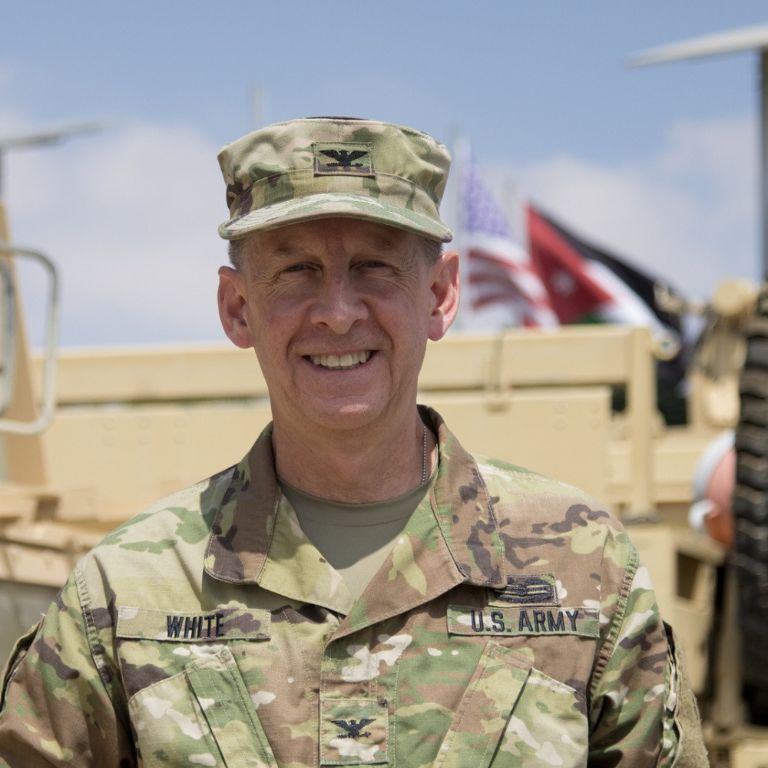
(AMMAN, Jordan) – Kirk White is using his background of fostering relationships between Indiana University, governmental bodies, and economic development agencies to build ties in the Middle East.

White, assistant vice president of strategic partnerships in the Office of the Vice President for Government Relations and Economic Engagement, has worked at IU for 35 years and is a colonel in the U.S. Army.
“I do a lot of work directly engaging with our Jordanian partners to see how we can come together and build a plan to help keep Jordan as safe and stable as it can be so this country continues to be a beacon of peace in this region,” he said.
He’s currently the officer in charge of Task Force Spartan-Jordan, a forward command post of Task Force Spartan in Southwest Asia. White oversees the military partnership between the U.S. Army and Jordan Armed Forces to help keep Jordan safe and stable.
Specifically he focuses on economic development and government relations.
“On the government relations side I work on how we can connect IU-Bloomington with city and county government to take advantage of the resources and assets IU brings to a community like Bloomington and Monroe County,” White said, “and how we can best connect with employers, government agencies and the people of Bloomington to make it a great community.”
“On the economic development side I do a lot of work with military organizations throughout Indiana, an area the university has assigned me to because of my knowledge of the armed services,” he said.
Because of these experiences at IU White was hand-picked by Maj. Gen. Gordon Ellis, the commanding general of 38th Infantry Division, to oversee the TF Spartan mission in the Hashemite Kingdom of Jordan.
“When he asked me to lead this mission I was honored he felt I had the right skill set to be here,” White said.
“I think he and I understand the importance of the relationships—personal and professional—you build during these deployments,” he said. “Our mission is not to be a military occupier, it’s to be a military partnership builder.
“Whether that’s here in Jordan or Afghanistan, the relationships we build on a daily or weekly basis with our counterparts to me are the most important part of this service.”
However, it takes a profound sense of empathy to successfully build these bonds, a skill White said can be difficult for some military professionals to adjust to.
“If I sit down with a Jordanian officer I need put myself in their boots and try to look at the world from their point of view,” White said. “What are their dreams, their goals, and how are they like mine? I know we both share a desire to have a safe and stable future for our children and our grandchildren, and I know—like us—that the Jordan Armed Forces work every day toward that goal.”
It is therefore essential for leaders and soldiers like White to work together daily, face-to-face, with their military counterparts in Jordan.
“The closer we can get to being shoulder-to-shoulder with our Jordanian friends the better we’ll all be,” he said. “We [the Army] can run a command post anywhere in the world, but we can only get close to our partners in the places they want to work with us.”
As this deployment comes to an end, his third since 2005, White is thankful for everything this part of the Middle East has taught him.
“I think too many Americans misunderstand our place as world citizens as Americans, but we have a responsibility with the gifts our forefathers have given us to help further the goals of peace and freedom,” he said, “and the best way to understand and achieve these goals is to work alongside people of different nations and cultures.”
“I hope when I leave here I am able to have a more in-depth understanding of this region of the world,” he said.
Information from Sgt. 1st Class Darron Salzer.



